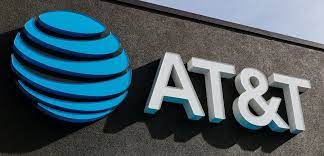News
AT&T Takes Swift Action After Data Breach

In a recent incident, AT&T Wireless experienced a data breach that affected the call and text records of “nearly all” of its 109 million customers. Despite this challenge, the telecommunications giant has made significant strides to address and rectify the situation.
The breach, which occurred from May to October 2022, was swiftly detected, and one suspect has already been arrested. Importantly, the stolen data did not include the content of calls or texts but was limited to metadata such as the numbers contacted and the duration of interactions.
AT&T has shown a strong commitment to customer security by quickly securing their systems to prevent any future breaches. The company’s prompt response and collaboration with the Justice Department underscore their dedication to national security and customer protection.
While the breach was only disclosed now, this delay was justified on national security grounds, ensuring a thorough investigation and effective mitigation measures. AT&T has expressed sincere regret over the incident and reassured customers of their continued efforts to safeguard their information.
In a proactive move, AT&T is notifying affected customers and providing resources for them to check if their data was compromised. Customers can log into their accounts for a comprehensive report on any impacted data. Additionally, AT&T is urging users to remain vigilant against phishing attempts and suspicious requests for personal information.
This breach follows a similar incident in 2019, but AT&T’s swift actions and transparent communication demonstrate their resolve to enhance security measures and maintain customer trust.
News
Kim Jong Un chooses teen daughter as heir, says Seoul

North Korean leader Kim Jong Un has chosen his teenage daughter, Kim Ju Ae, as his heir, according to South Korea’s National Intelligence Service (NIS), marking a potentially historic development in the dynastic leadership of the secretive state.
The NIS briefed lawmakers on Thursday that it believes Ju Ae — thought to be around 13 years old — has entered the formal stage of “successor designation”. The assessment, officials said, was based on a range of factors, including her increasingly prominent public appearances at major state events.
In recent months, Ju Ae has frequently been seen at her father’s side during high-profile engagements, including a visit to Beijing in September — her first known trip abroad. She has also appeared at key domestic ceremonies, such as the founding anniversary of the Korean People’s Army and visits to the Kumsusan Palace of the Sun, the mausoleum housing the bodies of North Korea’s former leaders.
Lawmaker Lee Seong-kwen told reporters that the intelligence agency had observed signs that Ju Ae was moving beyond symbolic appearances. “As Kim Ju Ae has shown her presence at various events… and signs have been detected of her voicing her opinion on certain state policies, the NIS believes she has now entered the stage of being designated as successor,” Lee said.
Previously, the NIS had described Ju Ae as being “trained” to assume a future leadership role. The latest briefing suggests that Pyongyang may now be transitioning from preparation to formal positioning within the ruling structure.
The agency also indicated it would closely monitor whether Ju Ae attends North Korea’s upcoming Workers’ Party Congress later this month. Held once every five years, the congress is the country’s most significant political gathering and is expected to outline Pyongyang’s strategic direction on foreign policy, military planning and nuclear development for the next half-decade.
Ju Ae is the only publicly acknowledged child of Kim Jong Un and his wife, Ri Sol Ju. However, South Korean intelligence believes the North Korean leader also has an older son, who has never been publicly identified or featured in state media.
The first public revelation of Ju Ae’s existence came from an unexpected source. In 2013, former American basketball player Dennis Rodman told The Guardian that he had “held baby Ju Ae” during a visit to North Korea.
Her first official appearance on state television occurred in 2022, when she was shown holding her father’s hand while inspecting a newly unveiled intercontinental ballistic missile — a powerful symbol linking her image to the regime’s strategic weapons programme.
News
Minnesota Immigration Enforcement Surge to Wind Down as Federal Officials Cite “Great Success”

The intensified US immigration enforcement operation in Minnesota is set to conclude, President Donald Trump’s border tsar Tom Homan has announced, marking the end of a months-long federal surge that drew both praise and protest.
Speaking to reporters on Thursday, Homan said President Trump had approved his request to wrap up Operation Metro Surge. He added that he would remain in Minnesota “a little longer to oversee the drawdown, to ensure its success,” signalling a managed and phased reduction rather than an abrupt withdrawal.
According to Homan, the operation led to the detention of numerous undocumented immigrants who had committed violent crimes and were facing deportation. He described the initiative as a “great success,” pointing to what he said was a significant narrowing of enforcement targets in the state.
Officials reported that more than 4,000 undocumented immigrants — whom Homan referred to as “illegal aliens” — were arrested during the operation. Among them, he said, were individuals convicted of rape and other sexual offences. Homan emphasised that Immigration and Customs Enforcement (ICE) has long maintained a presence in Minnesota and will continue to operate there even after the surge ends.
The enforcement campaign, however, was also met with widespread protests across the country. Public anger intensified following the deaths of two US citizens, Renee Good and Alex Pretti, who were killed by immigration officers during the crackdown. Their deaths became a flashpoint in the national debate over immigration enforcement tactics.
After the news conference, senior officials involved in the operation appeared before lawmakers on Capitol Hill to testify about the broader scope of the Trump administration’s immigration crackdown.
Homan attributed the decision to scale back the operation to what he called an unprecedented level of cooperation between federal authorities and local law enforcement. He said officials in Minnesota had been able to “greatly reduce the number of targets” for immigration enforcement, reflecting closer coordination.
He noted that Minneapolis law enforcement had stepped up action against protesters he described as public safety threats, and that local jails had become more willing to notify ICE about the release dates of individuals the agency was targeting.
Following the fatal shooting of Alex Pretti, President Trump dispatched Homan to Minneapolis to take direct oversight of the surge, sidelining the operation’s previous leader, Greg Bovino. Last week, Homan announced the removal of 700 immigration agents from the state, reducing the federal presence to around 2,000 officers. He said efforts were under way to return staffing levels to what they were before the operation began in December.
On Thursday, Homan remarked that Minnesota had become “less of a sanctuary state” in recent weeks. He confirmed holding meetings with Minneapolis Mayor Jacob Frey and Minnesota Governor Tim Walz, saying he urged them to “tone down the rhetoric” surrounding immigration enforcement.
Sanctuary cities and states typically enact laws limiting cooperation with federal immigration authorities. Homan’s comments suggest that evolving relationships between state, local and federal officials played a central role in bringing Operation Metro Surge to a close.
News
Nine killed and 25 injured in shootings at school and home in Canada

Canada is reeling after a deadly shooting in British Columbia that left nine people dead and at least 25 others injured, in an incident that has shaken a small, close-knit community and prompted an outpouring of national solidarity.
Police say the attacker killed nine people before taking their own life on Tuesday. Six victims were found dead inside Tumbler Ridge Secondary School, while a seventh person later died on the way to hospital. The body of the attacker was also discovered at the school. In addition, two more people were found dead inside a nearby residence, confirming that the violence extended beyond the school grounds.
An active shooter alert sent to the local community described the suspect as a “female in a dress with brown hair”. Authorities have not yet released further details about the individual as investigations continue.
Emergency services reported that at least two people were taken to hospital with serious or life-threatening injuries. As many as 25 others were being treated for non-life-threatening injuries, highlighting the scale of the response now underway to support survivors and their families.
Canada’s Prime Minister, Mark Carney, said he was “devastated” by the attack and expressed full support for those affected. He confirmed that his government “stands with all British Columbians as they confront this horrible tragedy”. In a sign of the seriousness of the moment, the prime minister cancelled his planned trip to the Munich Security Conference in order to focus on the national response.
British Columbia’s Minister of Public Safety and Solicitor General, Nina Krieger, praised the rapid actions of law enforcement, saying police arrived at Tumbler Ridge Secondary School within two minutes of receiving reports of an active shooter.
“This is a small, tight-knit community,” Krieger said, as she thanked responding officers “for their courage, for their dedication and professionalism”. She added that their swift intervention “no doubt saved lives today”, underlining the importance of preparedness and rapid response in moments of crisis.
Earlier, Krieger said the “devastating events are sending shockwaves through the community and the entire province”, as grief counsellors, medical teams and support services were mobilised to help those affected.
-

 News1 week ago
News1 week agoAndrew and Epstein asked exotic dancer for ‘sex acts,’ legal letter claims
-

 Business1 week ago
Business1 week agoChina bans hidden car door handles over safety concerns
-

 News1 week ago
News1 week agoClintons Agree to Testify in Epstein Probe as Congress Pauses Contempt Push
-

 News4 days ago
News4 days agoRussia Identifies Suspects in Shooting of Senior General
-

 News4 days ago
News4 days agoIranian Nobel Laureate Faces New Sentence as Support and Global Scrutiny Intensify
-

 News3 days ago
News3 days agoStarmer Vows to Stand Firm as He Rallies MPs Amid Mounting Political Pressure
-

 News1 week ago
News1 week agoLife Sentence Brings Closure After 2024 Attempt on Trump’s Life
-

 News2 days ago
News2 days agoNine killed and 25 injured in shootings at school and home in Canada









